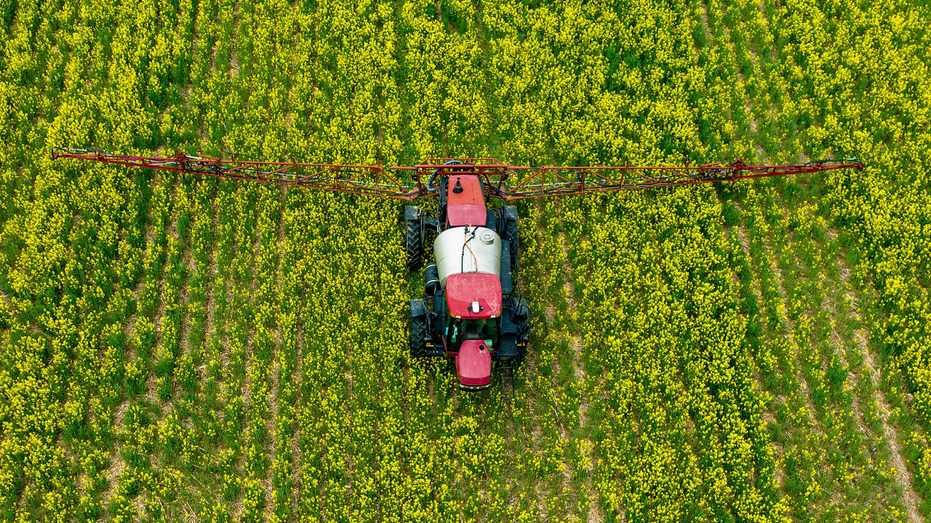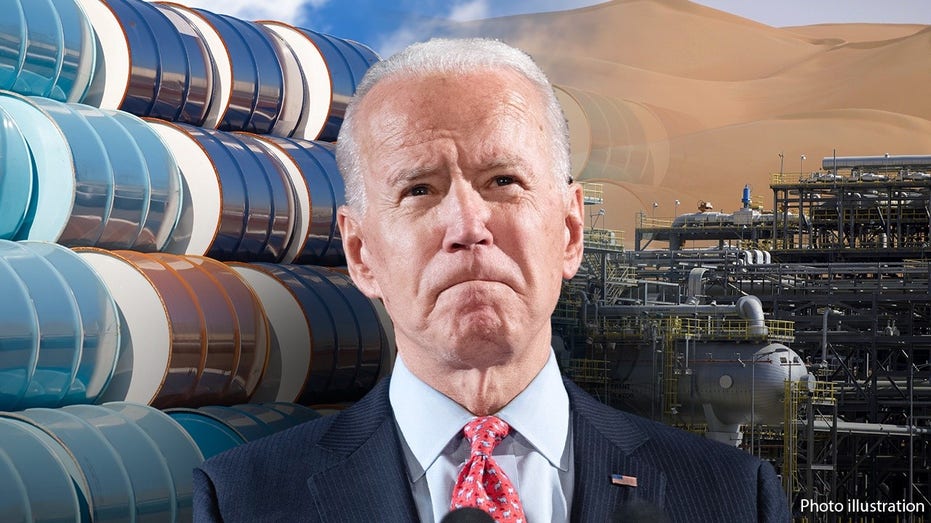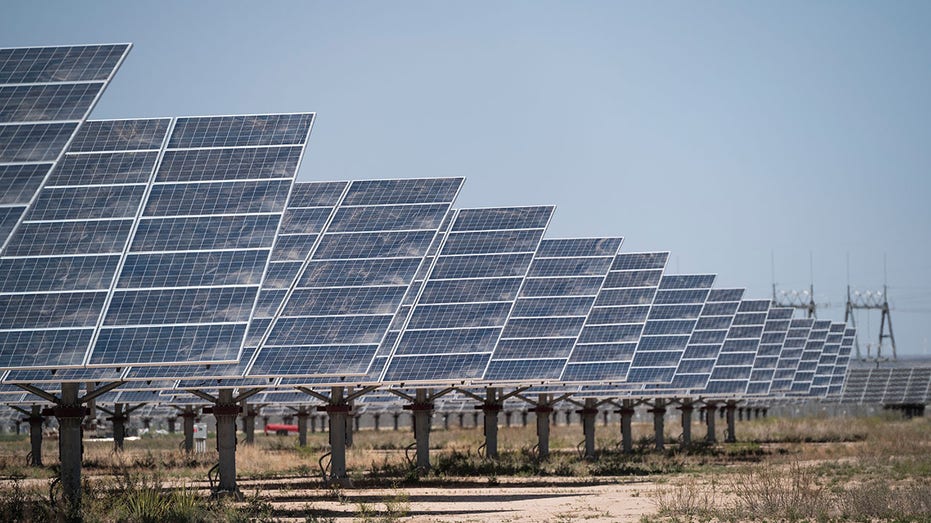'Costly’ ESG standards, climate policies will ultimately reduce food and energy supplies: report
Texas agriculture commissioner says ESG policies 'will have a devastating impact on US agriculture and world food security'
Biden's climate agenda is mucking up foreign policy around the globe: Rep. Mike Waltz
Rep. Mike Waltz, R-Fla., discusses whether Biden should strike Iran's oil fields in response to attacks on U.S. soldiers on 'Varney & Co.'
FIRST ON FOX: Climate change policies and environmental, social and governance (ESG) standards will have an outsized negative impact on the U.S. agriculture industry, according to a new report shared with FOX Business.
The report — published Wednesday by the free market think tank Buckeye Institute — is titled "Net-Zero Climate-Control Policies Will Fail the Farm" and outlines how farmers will see their operational costs rise by an estimated 34% as a result of net-zero ESG policies. While the report states its findings were "predictable and unsurprising," it added that U.S. policymakers seem "unwilling to address or even acknowledge them."
"Government climate-control policies ensconced in the Paris Climate Accords, the Inflation Reduction Act, and ESG-guided mandates carry a hefty price tag, especially for U.S. farms and the American consumer," wrote report authors Trevor Lewis and M. Ankith Reddy, who both serve as economic research analysts at The Buckeye Institute.
"Europe has tested many of these policies aggressively for years, and the results have been an unmitigated failure," they continued. "Despite these resounding warnings from European counterparts, U.S. policymakers have recommitted American industry to the same net-zero emissions standards and have imposed the same kinds of costly mandates on farms and businesses that will ultimately reduce food and energy supplies without achieving their intended benefits."
REPUBLICANS UNVEIL EFFORT BARRING CHINA, RUSSIA FROM BUYING US LAND

Net-zero ambitions — part of the broader environmental, social and governance (ESG) movement — could harm farmers, threaten America's food supply and lead to higher consumer prices. (JIM WATSON/AFP via Getty Images / Getty Images)
According to the report, The Buckeye Institute’s Economic Research Center developed a model for a hypothetical corn farm that must abide by new federal environmental regulations and standards.
As a result, diesel fuel prices needed for trucks, tractors and combines increased; propane needed for power grain dryers and heat barns increased in price; and prices for the nitrogen fertilizer needed to grow crops also rose. The report further modeled the impact those heavier cost burdens would have on consumer, showing the average American family of four’s household grocery bill would increase by roughly $1,300 per year.
GOP LAWMAKER CALLS FOR HEARING ON ‘DISTURBING’ EFFORTS TO ALLOW FOREIGN OWNERSHIP OF PUBLIC LANDS
Overall, the prices of common grocery items, including American cheese, would increase 78%, beef would increase by 70%, rice would tick up 56%, chicken would see a 39% increase and eggs would be 36% more expensive. Foods that require more carbon-intensive processes to produce saw the largest uptick in prices.
"Oil and gas producers, chemical companies and the American farm will likely shoulder the heaviest compliance burden, but they will inevitably share the cost with U.S. consumers as the government-induced high prices for fuel, fertilizer, and food ripple across the economic pond," the report concluded. "Misguided climate-control policies can and should be resisted at every level."

President Biden has pursued an aggressive climate agenda since taking office, targeting the power, manufacturing, transportation and agriculture sectors over their carbon footprint. (AP Images / AP Images)
Among the regulations the report analyzed were the Biden administration's actions targeting the oil and gas sector and the petrochemical industry while simultaneously pushing green energy alternatives. The report states that green energy sources like wind and solar are unreliable, more expensive and intermittent.
Meanwhile, the report comes a week after a dozen Republican state agriculture commissioners joined together to warn six major financial institutions that their ESG commitments would negatively impact farmers. The officials wrote a letter on Jan. 29 to top executives of Bank of America, Citigroup, Goldman Sachs, JPMorgan Chase, Morgan Stanley and Wells Fargo, taking issue in particular with their collective membership in the Net-Zero Banking Alliance.
"Newly released research by the Buckeye Institute confirms our greatest fears about environmental, social, governance or ESG investing," Texas Agriculture Commissioner Sid Miller said in a statement Wednesday. "Last week, I joined 11 other state agriculture leaders to co-sign a letter that addressed this very issue. Imposing costly ESG requirements on America's farmers and ranchers will have a devastating impact on U.S. agriculture and world food security."

A solar farm produces electricity near Bakersfield, Texas, on April 10, 2021. The report Wednesday cast doubt on the ability of green energy sources to replace power for farmers. (Getty Images / Getty Images)
Will Hild, the executive director of watchdog group Consumers' Research, added that the report shows Americans are being victimized by the ESG movement.
CLICK HERE TO GET THE FOX NEWS APP
"Farmers and ranchers lay out huge sums for everything from fertilizer, seeds, and feed to heavy machinery and pesticides to produce the food we eat," Hild told FOX Business. "Yet, the climate cult and ESG elites are causing these costs to skyrocket. That puts a heavier financial burden on agricultural producers and imposes higher food costs on hardworking Americans.
"The Buckeye Institute’s report shines a light on these facts. America’s farmers and ranchers’ livelihoods shouldn’t be at risk because of inflated operating costs or loss of access to capital from woke banks. Nor should the American people be victim to a crushing tax put on their groceries by climate extremists."





















